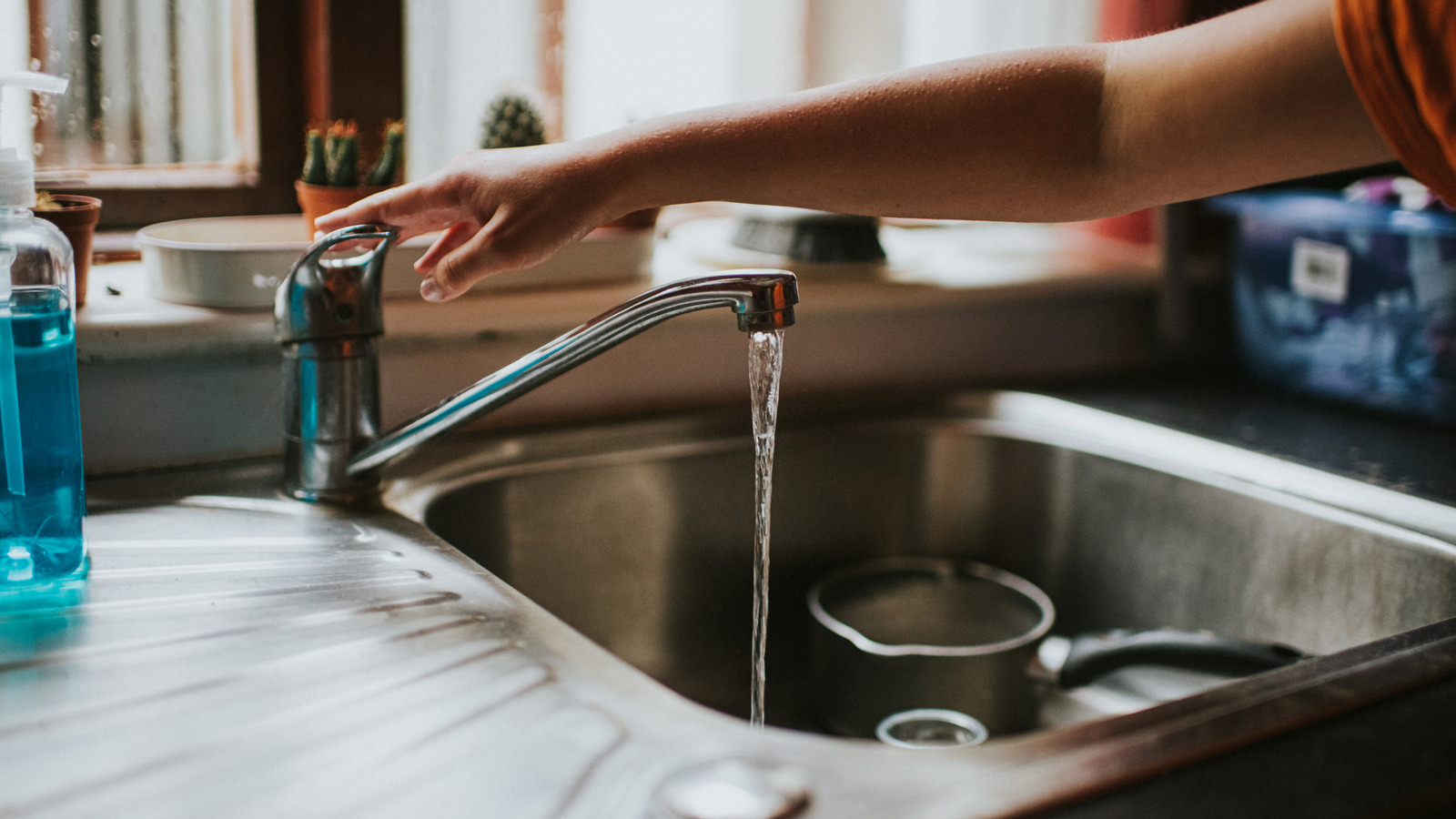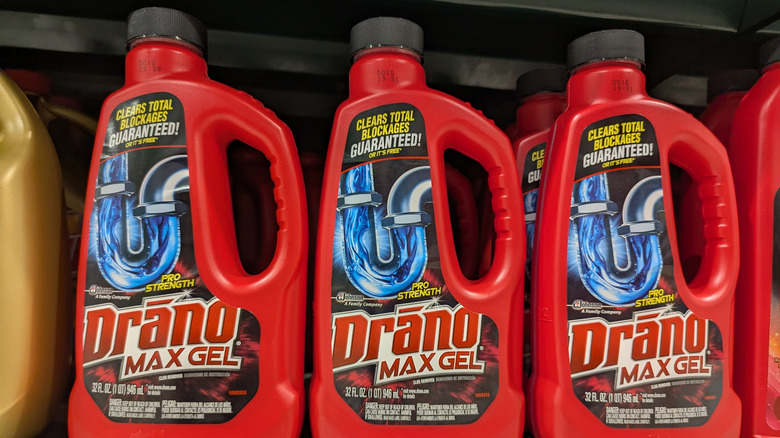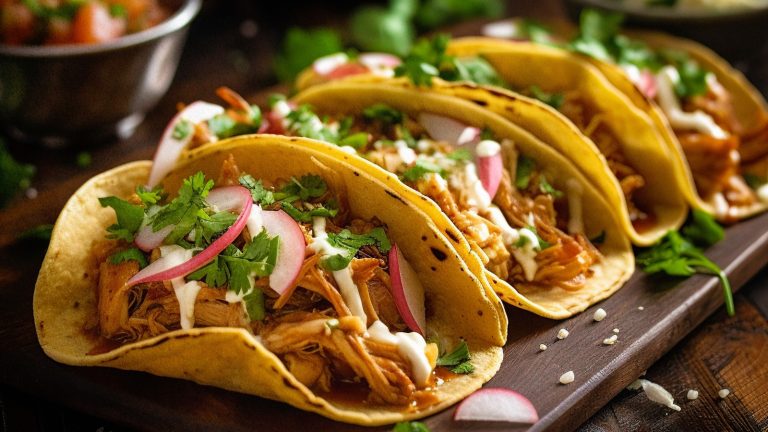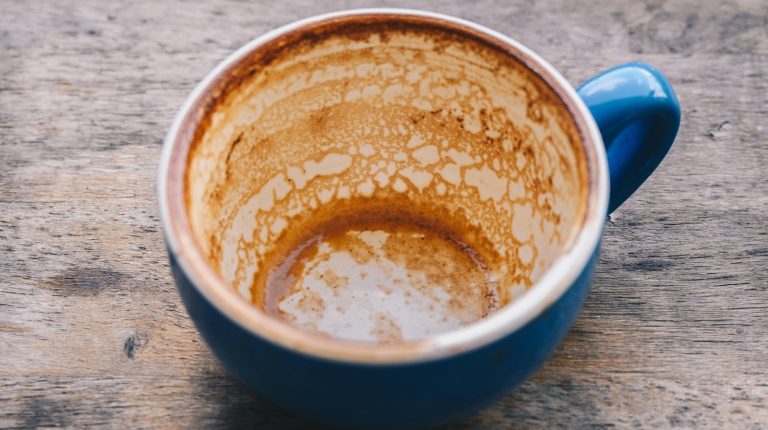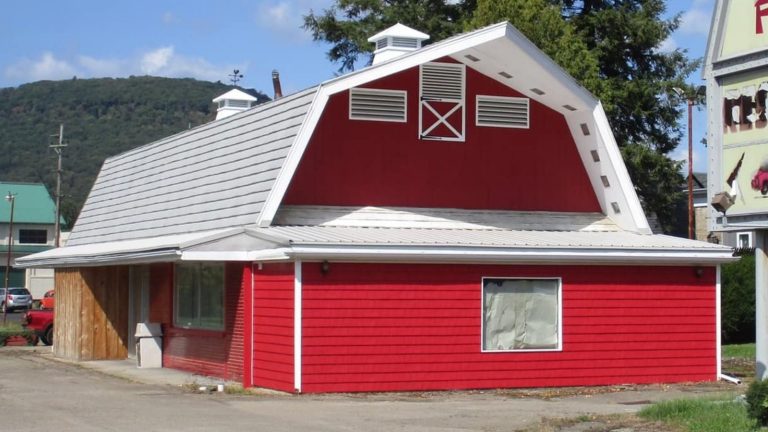Any number of things can lead to a clogged kitchen drain, with some of the most common being grease and fat, starches like rice and pasta, coffee grounds, and other trapped foods scraps. Clogging your drain can usually be avoided by remembering that certain foods should never be put down your kitchen sink, but stuff still happens. If you have a clog, there are natural ways to clear it up without using a product that contains harsh chemicals or resorting to calling a professional. Speaking of professionals, Chowhound spoke with Alexis Rochester, investigative chemist and founder of Chemistry Cachet, a website offering science-backed cleaning advice, to hear her thoughts on natural ways to get the gunk out of your kitchen drains. She recommends using baking soda and vinegar to unclog your kitchen sink.
Rochester says to mix 1 cup of water with equal parts vinegar and pour it into your sink after you’ve already dumped 1 cup of baking soda down there. Once you’ve done that, she suggests putting a towel over the drain opening and waiting for five minutes, letting the reaction do its thing. The final step is to pour approximately 3-4 cups of boiling water down the drain to encourage the solution to make its way through the pipes properly.
Although this clog solution does not involve harsh, store-bought chemical products, there are still some measures you should take for success. Rochester says, “Even though baking soda and vinegar are natural, they react together to form a salt. You want to make sure you don’t over use them or not follow up with hot water. The key to this method working is the reaction itself which can break apart gunk or grease clogs.”
Why drain-cleaning chemicals aren’t ideal and other tips
If you’re about to pick up some Drano, you might want to reconsider. Alexis Rochester says that drain-cleaning products like Drano typically only provide a temporary fix. She explains, “Drano often only creates a small opening in a larger clog. It doesn’t address the root cause of the blockage, meaning the clog is likely to return.” That said, it’ll work in a pinch if you’re in a real bind. However, if you’ve employed the natural baking soda and vinegar method or used a store-bought option, and neither helps, Rochester says the clog is probably deeper down, and it’s time to seek help. She explains, “The biggest rookie mistake is not calling a professional when nothing seems to help.”
Rochester always aims to prevent frustrating clogs from occurring in the first place. Food and grease are the main culprits, so she uses a paper towel to completely wipe away any grease that may be lingering on pans or cookware prior to putting them in the sink. She also makes sure to compost or toss any food particles in the trash. This way, they won’t accidentally end up going down the sink.
Lastly, using a good, concentrated dish soap is key. As Rochester says, “Always wash your dishes with a dish soap like this which can break up small amounts of grease that might end up in the drain.” If you always follow these tips, your drains shouldn’t give you much (if any) trouble. And if they do, never forget the power of vinegar and water.


